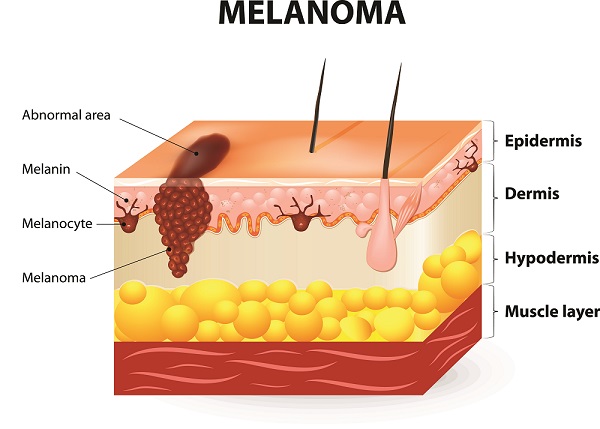Elevated prevalence of mental health problems in patients with skin cancer
Skin cancer is the most common tumor in humans. The most common types of skin cancer are basal cell cancer, squamous cell cancer and melanoma skin cancer. Basal cell and squamous cell cancers are also termed non-melanoma skin cancers and keratinocyte cancers. The main cause for skin cancer development is sun exposure, including both intermittent high intensity exposure as well as cumulative sun exposure . According to the National Alliance on Mental Illness, one of every five adults in the US experiences mental illness. With both of these conditions having such high incidence rates, an overlap between the two would be expected, however the relationship between mental health and skin cancer is not well understood. Previous studies have revealed melanoma patients exhibit high rates of depression and anxiety though the cause of this relationship is not clear. Of note, individuals who use indoor tanning beds have significantly increased rates of melanoma as well as higher rates of anxiety and substance abuse. A recently published study attempted to evaluate the relationship between mental health and keratinocyte carcinomas.
This cross-sectional study utilized data from the 2016 Behavioral Risk Factor Surveillance System (BRFSS) in the United States, a random phone survey of adults conducted by the CDC. The survey included over 400,000 participants. The analysis of the data revealed odds of skin cancer were significantly higher in those with mental health problems. The authors of this study discussed how skin cancer may lead to anxiety and poor disease-specific quality of life. Patients who are diagnosed with skin cancer may be anxious about scarring and the treatments required for cure. In addition, the authors of this study discuss that mental health problems may contribute to skin cancer development. For example, stress can affect the immune system’s function leading to increased rates of skin cancer. Further risk factors for the development of skin cancers such as indoor tanning, smoking and alcohol use may also play a role in the development of skin cancer in patients who have mental illness. Further investigation is warranted to understand the association between poor mental health and increased risk for skin cancer prevalence. In the meantime, providers who see skin cancer patients should be aware of the possible correlation of mental health problems and skin cancer and screen their patients accordingly.
